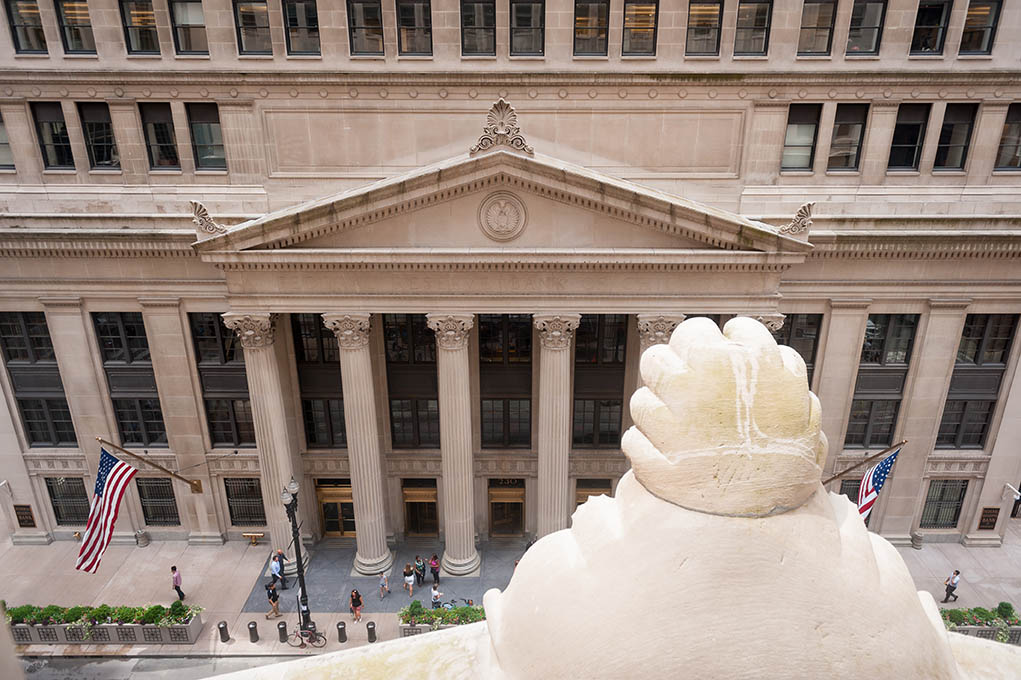Accountability, Transparency and Ethics

From day one Mayor Emanuel has worked to restore faith in government by changing the culture of City Hall. The Mayor’s first act in office was signing a series of executive orders to strengthen ethics rules and close the revolving door between lobbying and government. Since then, the City has passed five sweeping ethics reform ordinances, replaced the entire Board of Ethics, strengthened disclosure requirements for lobbyists, and established an independent budget office to serve as a watchdog for taxpayer dollars.
In addition, the administration has brought a new level of accountability to City Hall by creating a real-time lobbyist disclosure site, taking away employee credit cards, and going after companies that violate women- and minority-owned business requirements. Mayor Emanuel expanded the scope of the Office of the Inspector General, and brought, for the first time, every city agency and department under oversight by an Inspector General. Under Mayor Emanuel’s leadership, the City of Chicago was dismissed from the Shakman lawsuit, ending a decade of federal oversight of the City’s hiring practices.
-
On his first day in office Mayor Emanuel signed six Executive Orders, prohibiting new appointees from lobbying City government for two years after leaving the Administration, protecting City employees against pressure to give gifts or make political contributions to their superiors, including department heads and the Mayor, and prohibiting City lobbyists from making political contributions to the Mayor.
-
In December 2011, Mayor Emanuel appointed an Ethics Reform Task Force charged with strengthening the city’s ethics ordinance to ensure appropriate oversight of government activity. Based on recommendations from this Task Force, Mayor Emanuel passed two major ethics reform ordinances through City Council in 2012, strengthening the gift ban and rules for financial disclosures as well as establishing a code of conduct for all City employees and officials.
-
In July 2011, City Council passed an ordinance to create the most comprehensive real-time lobbyist disclosure database in the nation and to impose stricter limits on lobbying activities. The City now posts lobbying data online in a new, easy-to-use, comprehensive, and searchable format that has enhanced transparency throughout City government.
-
Under Mayor Emanuel, the authority and scope of the Office of the Inspector General has been expanded, including enhancing investigative authority for ethics, lobbying, and campaign finance violations and for allegations of wrongdoing by members of the City Council and their staff. In 2014, the Office of the Inspector General was authorized to exercise its powers and duties with respect to any sister agency pursuant to an intergovernmental agreement; by 2015, all city departments and sister agencies were under the oversight of an Inspector General for the first time in city history.
-
In 2014, Chicago was dismissed from the 45-year-old Shakman lawsuit to prevent political patronage hiring, ending a decade of federal oversight. To lead the city to compliance, the Emanuel administration reformed the City’s hiring practices, including: adopting regular reporting and auditing requirements related to hiring; creating Police and Fire hiring plans; and developing whistleblower protections to support the investigative and disciplinary process.
-
Mayor Emanuel replaced the entire Board of Ethics in October 2012 and introduced seven new appointments, including two former judges, a former patronage monitor, a General Counsel for a large company, and community leaders. With a new board and the most comprehensive set of ethics reforms in more than a decade, the Mayor established a clear priority to have stronger ethics enforcement.
-
Mayor Emanuel has overhauled the City’s data portal which now hosts nearly 1,300 datasets and has been viewed more than 25 million times. Notable additions to the data portal include the most comprehensive set of data on Transportation Network Providers like Uber and Lyft, a searchable version of the City’s budget, and more than 6.85 million crime incident reports going back seventeen years. Chicago received a national transparency award from the Sunshine Review, a national nonprofit organization dedicated to government transparency.
-
Mayor Emanuel launched the Procurement Reform Task Force in 2015, co-chaired by the Chief Procurement Officer and the Inspector General. The recommendations of the task force will increase transparency for the public, reduce administrative burden, increase competition, and lower barriers to entry for our small local businesses and save taxpayer money. As a result of the Task Force’s recommendations, the City has been highlighted as a national leader of inclusive procurement practices such as the Diversity Credit Program and Small Business Initiative.
Read more about the Accountability, Transparency and Ethics progress made over the last eight years.
